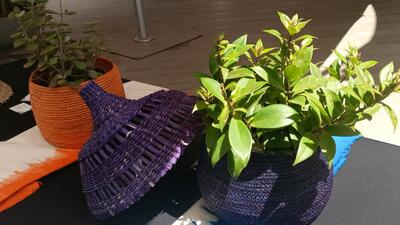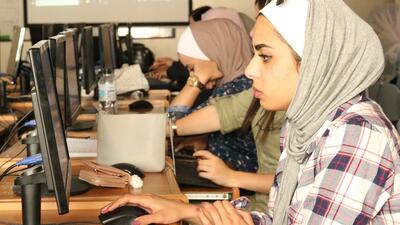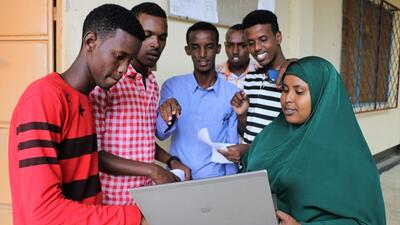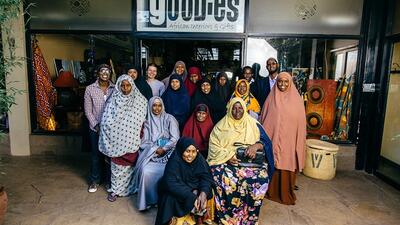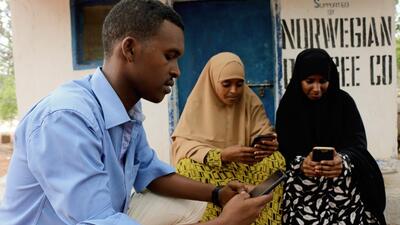
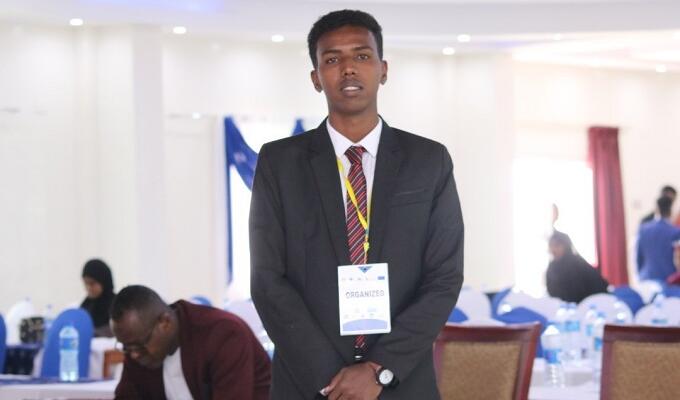
Story: Upgrading online skills to fight unemployment in Hargeisa
Rooda Mohamed, not even 30 years old, has relocated several times during her life to access proper education. She was born in the Somali city of Burao and moved to a town called Sheikh, almost 60km away from Burao for primary school education. Not long after, she had to move back to Burao for secondary schooling. She then relocated to Hargeisa to attend the local university but was not able to find a job, despite her degree in public health. So she started looking for alternatives.
'I have always been passionate about video production, especially editing, but faced problems on exploring or learning the tools, software and skills to pursue a career in that field,' she says.
Hargeisa is a growing urban area with a high level of unemployment among youth. At the same time, the city is starting to prosper with support from the Somali diaspora and the development community, with local youth playing an important role in this growth.
Since 2019, the Refugee Employment and Skills Initiative of the International Trade Centre has been present in Hargeisa, working together with the local organization Shaqodoon. Shaqodoon works to give young people access to skills and employment.
Together, the International Trade Centre and Shaqodoon provide skills development and employment services to youth, focusing on online freelancing, which allows them to connect to clients and access jobs through online platforms. The project has trained participants in social media marketing and web development and is currently mentoring them to kick-start their careers online.
Rooda says: 'Now, I have more clarity on concepts such as freelancing. I have built a strong understanding of tools for creative works, and I have established a learning path to explore and study these concepts even more to continue learning.'
Developing skills and accessing online markets
Mohamed Omer, 21 years old, was born and raised in Hargeisa. He studied software engineering and has digital marketing skills, but did not know how to make a career out of his knowledge.
'Before the Refugee Employment and Skills Initiative, I had problems with graphic skills and video production. I understood the tools but was never comfortable enough to go after gigs and work at it professionally. I also did not understand how one can use social media for marketing or do business that generates money,' he says.
The Refugee Employment and Skills Initiative allows participants like Mohamed to deepen their skills for professional purposes, but it does not end there. After the training, the International Trade Centre provides technical support and connects participants to the digital services sector.
'I have been facing challenges registering for freelancing platforms, curating my accounts to work and attracting jobs. Fulfilling all requirements, such as having a valid bank card, was indeed a problem,' the young freelancer explains.
As part of its market access support, the initiative helps young people build a profile on the online work platform Upwork. This process can be challenging in vulnerable communities who have limited access to IDs and bank accounts, but through partnerships with the private sector, the International Trade Centre is able to facilitate this process.
In addition, the mentorship programme teaches participants to apply for jobs, communicate with clients and deliver quality work. They will soon have access to various webinars and live chats to navigate online work platforms and troubleshoot questions as they arise.
This market access support is a crucial component of the Refugee Employment and Skills Initiative, as it allows young people to transition from being students to professionals for a sustained and independent future.




